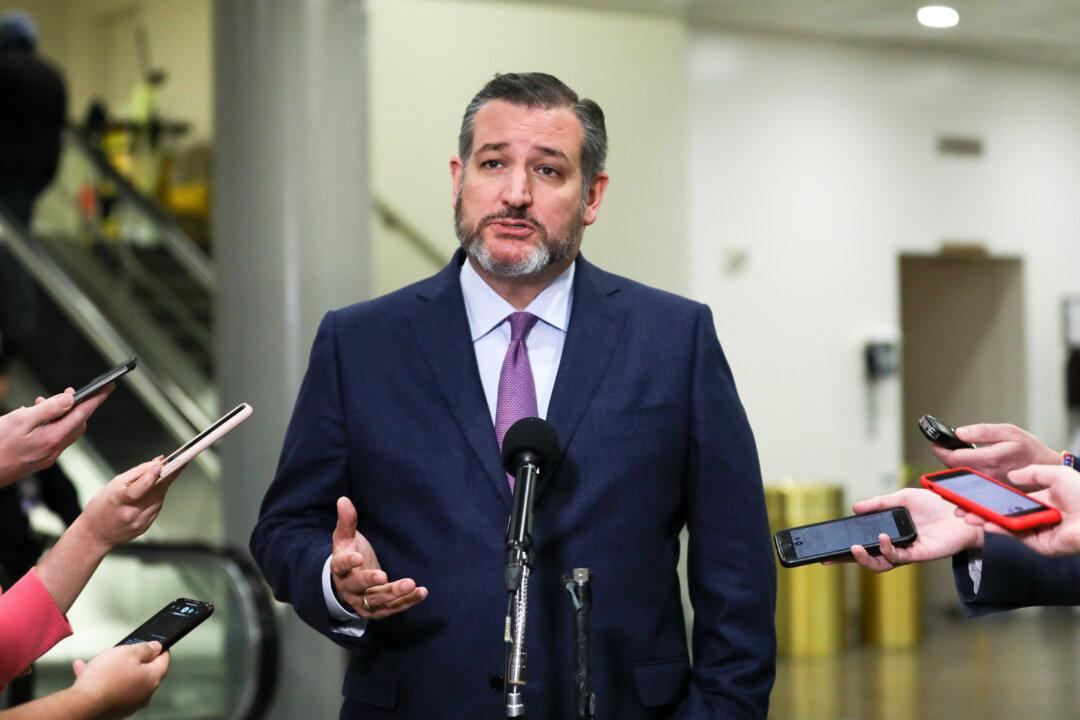The Biden administration is rushing to embrace the Chinese Communist Party (CCP)—a policy strategy Sen. Ted Cruz (R-Texas) called “dangerous” in a video he posted that seeks to bring attention to comments made by the president’s Cabinet nominees.
The warm relationship—which has already emerged in the beginning weeks of the administration—threatens to undo years of efforts to counter the CCP. Under the Trump administration, the United States began responding to Beijing’s “unrestricted warfare” strategy by ratcheting up its war of words and escalating its countermeasures.





